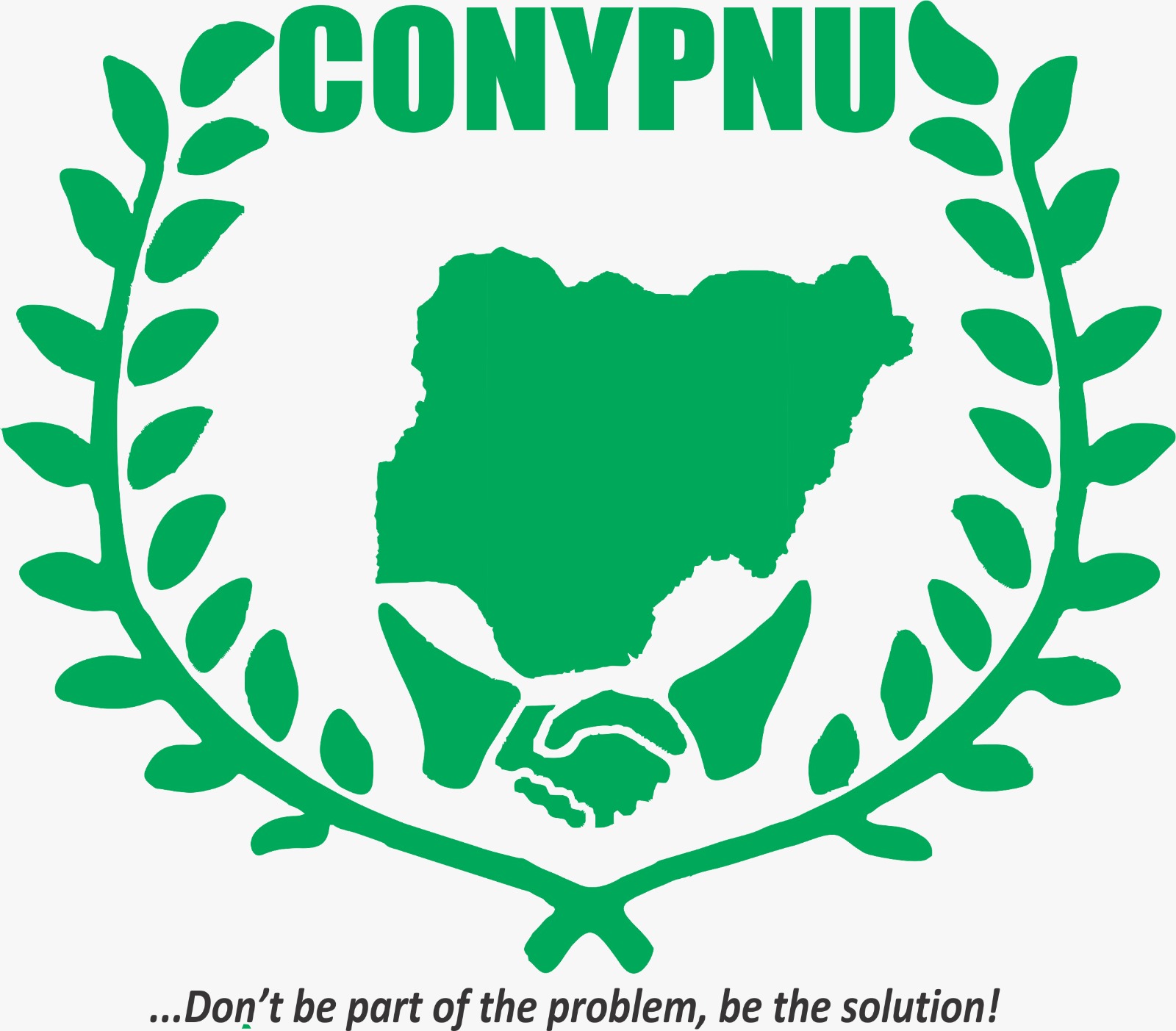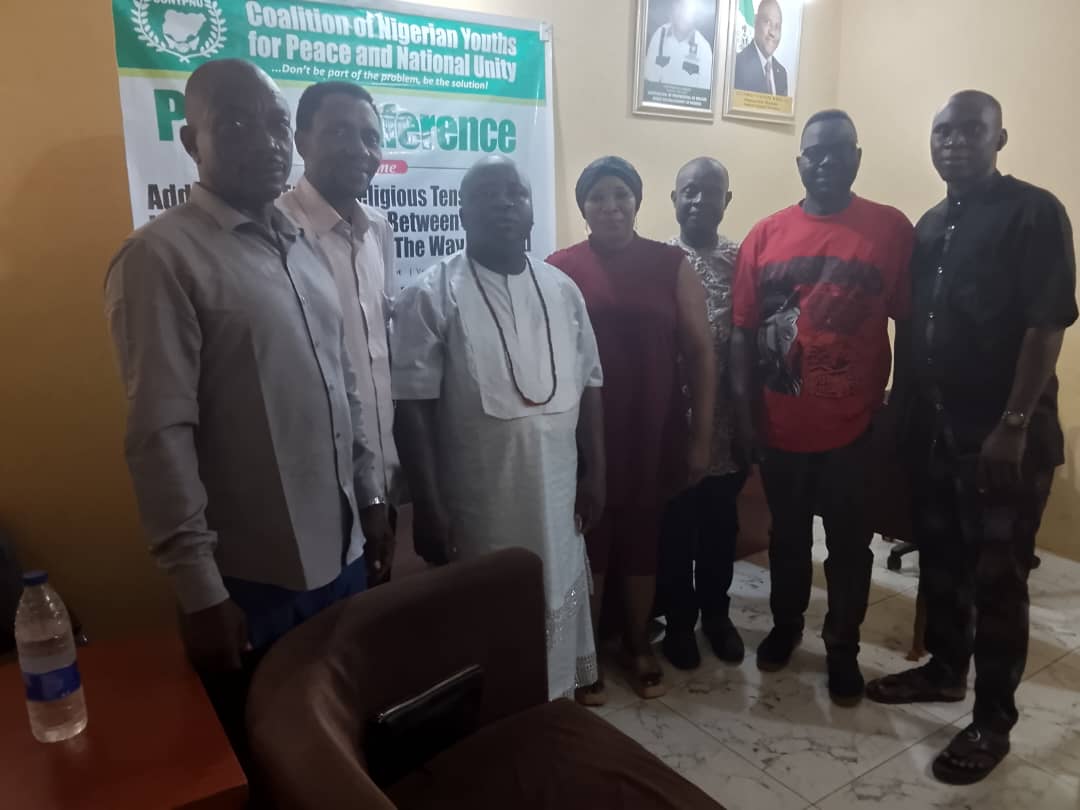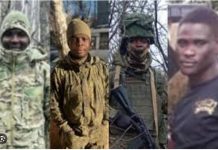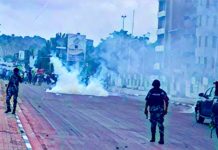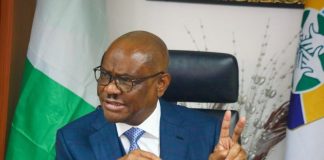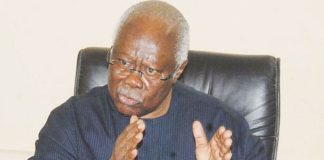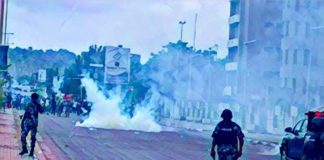🌿 Ruzu Non-Alcoholic Herbal Bitters
Ruzu Non-Alcoholic Herbal Bitters is a natural health supplement specially formulated to:
- ✅ Promote general wellness
- ✅ Detoxify the body
- ✅ Support the treatment of various ailments
Made from a powerful blend of 100% organic and medicinal herbs, Ruzu is completely alcohol-free, making it ideal for:
- 👪 All age groups
- 🌱 Health-conscious individuals
- 🌿 Anyone seeking non-alcoholic herbal remedies
Whether you're looking to boost your vitality, cleanse your system, or support healing the natural way, Ruzu Bitters offers a trusted herbal solution.
CONYPNU: Addressing Ethno-Religious Tension and Historical Grievance Between Northern and Southern Nigeria
….The way forward
By Naomisophyblog
The Coalition of Nigerian Youths for Peace and National Unity convened a press conference on Saturday April 12th, 2025 in Abuja to address the urgent and persistent challenges posed by ethno-religious tensions and historical grievances between Northern and Southern Nigeria.
This gathering comes in the wake of two tragic incidents that have highlighted the destructive consequences of division:
The extrajudicial killing of 16 northern youths in Uromi, Edo State, falsely accused of kidnapping and brutally set ablaze by a mob and the killing of Deborah Samuel, a Christian student in Sokoto State, stoned and burned by religious fanatics over alleged blasphemy.
These acts are symptomatic of deeper fractures within our society—ethnic polarization, religious intolerance, and unresolved historical injustices—that threaten national unity and progress.
Key issues discussed are:
1. Root Causes of Ethno-Religious Tensions Indigene-Settler Conflicts: Disputes over land rights and political representation in areas such as Jos and Kaduna continue to fuel violence, often framed as ethnic or religious clashes but rooted in systemic inequalities.
Sharia Law and Identity Politics: The implementation of Sharia law has polarized communities, creating identity-based conflicts that deepen mistrust between religious groups.
Manipulation by Political Elites: Politicians exploit ethnic and religious differences for electoral gains, exacerbating divisions across the country: the case of Benue, Taraba, Niger, Edo, and Delta.
2. Historical Grievances Colonial Legacy: The amalgamation of Northern and Southern Nigeria in 1914 ignored ethnic and religious boundaries, sowing seeds of discord that persist to this day.
Post-Independence Inequalities: Unequal resource distribution, marginalization, and regional disparities have perpetuated grievances between communities.
3. Consequences of Unresolved Tensions
Thousands have died in sectarian clashes between Christians and Muslims, with many displaced due to violence.
Polarized elections exacerbate ethno-religious divides, undermining democratic processes.
Economic stagnation persists as investors avoid regions plagued by instability.
Resolutions Adopted
To address these challenges, the Coalition proposes the following actionable solutions:
1. Constitutional Reform
Reform legal frameworks to address systemic drivers like indigene-settler disputes and ensure equal access to land ownership, political representation, and economic opportunities regardless of ethnicity or religion.
2. Interfaith Dialogue
Strengthen initiatives like the Nigerian Inter-Religious Council (NIREC) to foster mutual understanding between religious groups. Faith leaders must preach tolerance while rejecting extremism in all its forms.
3. Community-Based Mediation
Empower local leaders to resolve disputes using traditional conflict-resolution methods that rebuild trust at the grassroots level. Models like Kaduna State’s Peace Commission should be replicated nationwide.
4. Economic Development Programs
Reduce inequalities through investment in education, infrastructure, and job creation across marginalized regions to address root causes like poverty and unemployment that fuel violence.
Call to Action
The Coalition calls on all stakeholders—government officials, religious leaders, community representatives, civil society organizations, and citizens—to take decisive steps toward peacebuilding:
To Leaders: Stop exploiting our differences for political gain; prioritize national unity over sectional interests through inclusive governance practices.
To Religious Institutions: Reject extremism in all its forms; preach tolerance as mandated by both the Quran (“make peace among yourselves”) and the Bible (“love thy neighbor as thyself”).
To Citizens: Reject stereotypes that divide us; see beyond labels of ethnicity or religion to recognize our shared humanity.
Urgent Imperatives for Security Agencies
In light of recurring ethno-religious violence—including the Uromi killings, Sokoto lynching and elsewhere—security agencies must adopt proactive, intelligence-driven strategies to prevent future atrocities:
1. Prioritize Intelligence Gathering and Early Warning Systems
Strengthen grassroots intelligence networks to detect and neutralize threats before they escalate, as seen in successful conflict prevention models.
Collaborate with community leaders to identify and address grievances (e.g., land disputes, political marginalization) that often precede violence.
2. Reform Coercive Tactics
Avoid excessive force: The deployment of military personnel without mediation often exacerbates tensions, as seen in Jos and Kaduna crises.
Train personnel in conflict-sensitive policing, emphasizing de-escalation and human rights compliance to rebuild public trust.
3. Enhance Community Policing Frameworks
Establish local security task forces that include trusted community representatives to bridge gaps between agencies and civilians.
Replicate Kaduna’s Peace Commission model, which combines traditional leaders and security experts to mediate disputes.
4. Address Structural Drivers of Conflict
Partner with state governments to enforce constitutional reforms that resolve indigene-settler disputes and ensure equitable resource distribution.
Secure vulnerable regions (e.g., Jos, Southern Kaduna, Niger, and Benue) with targeted patrols and dialogue initiatives to counter extremist narratives.
5. Collaborate with Civil Society and Religious Bodies
Support interfaith platforms like NIREC to isolate extremists and promote tolerance.
Provide security for mediation efforts, ensuring safe spaces for dialogue between conflicting groups.
Foster collaboration among security agencies, humanitarian organizations, and local governments to ensure a unified response to escalating threats.
Regional Partnerships: Work with neighboring regions to monitor the movement of armed groups and prevent cross-border attacks.
Immediate Steps
*Investigate the Uromi and Sokoto killings transparently to restore faith in justice systems.
*Publicly condemn hate speech and ethno-religious profiling, leveraging media to counter divisive narratives.
*Allocate resources to poverty-stricken regions to reduce vulnerabilities exploited by conflict entrepreneurs.
*Strengthen Policing and Intelligence: Deploy more security personnel to rural areas and highways, focusing on intelligence-driven operations to combat banditry, kidnappings, and cattle rustling in states like Niger, Benue, Edo and Delta.
Enhance Community Engagement: Collaborate with local leaders and vigilante groups to improve early warning systems and build trust between communities and law enforcement.
Conclusion
Nigeria’s strength lies in its diversity—our cultures, languages, religions are gifts meant to enrich us rather than divide us. By addressing ethno-religious tensions with justice, dialogue, mediation, and development programs, we can transform division into unity and build a nation where every citizen feels safe regardless of their background. As Nelson Mandela once said: “Safety and security don’t just happen—they are the result of collective consensus and public investment.”

